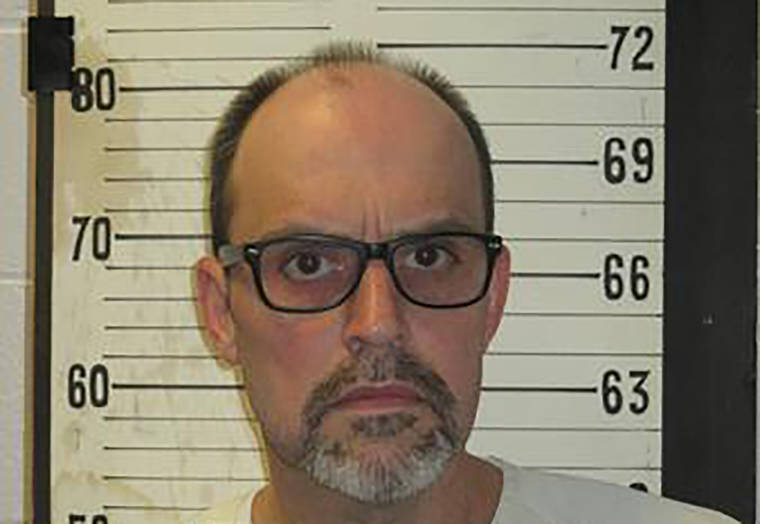NASHVILLE, Tenn. — A blind prisoner convicted of killing his estranged girlfriend by setting her on fire in her car was put to death Thursday in Tennessee’s electric chair, becoming only the second inmate without sight to be executed in the U.S. since the reinstatement of the nation’s death penalty in 1976.
Lee Hall, 53, was pronounced dead at 7:26 p.m. at a Nashville maximum-security prison, prison officials said. He chose the electric chair over Tennessee’s preferred execution method of lethal injection — an option allowed inmates in the state who were convicted of crimes before January 1999. He also became the first blind inmate in U.S. modern history to die by electrocution.
Hall was asked if he had final words Thursday night. He asked for water so he could speak but was told there wasn’t any. “People need to learn forgiveness and love and make this world a better place,” Hall said shortly before being put to death.
Hall had his vision when he entered death row decades ago, but his attorneys say he later became functionally blind from improperly treated glaucoma. Only one other known blind inmate has been executed in the U.S. since the Supreme Court allowed executions to resume in 1976: Clarence Ray Allen, 76, received a lethal injection in California in 2006.
Court documents state that Hall killed 22-year-old Traci Crozier on April 17, 1991 by setting her car ablaze with a container of gasoline that he lit and tossed in her vehicle while she was inside and trying to leave him. The container exploded and Crozier suffered burns across more than 90% of her body, dying the next day in the hospital.
Crozier’s sister, Staci Wooten, and her father, Gene Crozier, had said earlier they planned to watch Hall’s execution.
Defense attorney Kelly Gleason had asked the federal courts to stop Hall from being put to death after other attempts in state courts and with Tennessee’s governor had failed. But late Thursday, the U.S. Supreme Court rejected the inmate’s 11th-hour request for a stay of execution. The court gave no explanation for its decision.
Previously, Hall’s attorneys had been fighting for months to delay the execution plan, arguing that courts should have had the opportunity to weigh new questions surrounding a possible biased juror who helped hand down the death sentence decades ago against Hall, who was formerly known as Leroy Hall Jr.
The woman — simply known as “Juror A”— acknowledged publicly for the first time this year that she failed to disclose she had been repeatedly raped and abused by her former husband during Hall’s jury selection process. Hall’s attorneys argued the omission deprived him of a fair and impartial jury — a right protected in both the Tennessee and U.S. constitutions
However, both the Tennessee Supreme Court and Gov. Bill Lee declined to step in despite pleas from Hall’s attorneys for more time to explore the possible legal concerns.
Lee, a Republican, has not intervened in any of the four execution cases that have come across his desk since he became governor in January. He also has previously declined to weigh in on whether he approves of the state’s increased usage of the electric chair, noting instead that it’s a legal option in Tennessee.
The U.S. Supreme Court has never ruled on whether use of the electric chair violates the 8th Amendment ban on cruel and unusual punishment, but it came close about 20 years ago after a series of botched electrocutions in Florida.
Meanwhile, state courts in Georgia and Nebraska have declared the electric chair unconstitutional.
The high court has also neither set an upper age limit for executions nor created an exception for a physical infirmity.
Tennessee is one of six states in which inmates can choose the electric chair, but it’s the only state that has used the chair in recent years. Three out of five recent inmates put to death in Tennessee have chosen the chair since the state began resuming executions in August 2018.


